“Ultimate wellbeing has nothing to do with what’s outside us,” says Daniel Goleman.
What would happen if we could fully take charge of our own wellbeing?
Six Seconds’ CEO Josh Freedman had the opportunity to sit down virtually with Daniel Goleman to talk about his newest book, Altered Traits: Science Reveals How Meditation Changes Your Mind, Brain, and Body, coathored with the renowned Richard Davidson; a deep dive into the neuroscience of mindfulness. We start by defining wellbeing, then explore how the new science shapes new perspectives on ancient traditions as we seek to reverse trends of rising stress to restore peace and equanimity – at least within ourselves.

Fortunately, the latest neuroscience – and Six Seconds’ own research on emotional intelligence – offers enticing insights to help us increase this most precious state. The short answer is: Wellbeing flourishes from the inside out. We can’t chase it and we can’t buy it. But we can train ourselves, mind, body, and heart, and grow the “muscles” that enable our best selves.
Unfortunately, Goleman points out, we live in a world that seems to be conspiring against this growth.
Wellbeing is an elusive term in modern English; we don’t really have a word to define this active, awake, vibrant state of open attention.
The ancient Greeks called it Eudaimonia, a burning ember of “good genius” that marks the best in human aspiration (more). In Japanese, a similar term is “Genki” — an internal force of health. The Japanese character 元気 “genki” has roots in the Chinese characters for “first” and “energy” or “spirit,” the force that permeates all life (more). Positive Psychology guru Martin Seligman describes it as Flourishing. Whatever the word, many of us want more. Where do we get it?

Why We Feel Yucky: What’s Diminishing Wellbeing?
According to the Gallup-Healthways Wellbeing index of five key wellbeing ingredients (Purpose, Social, Financial, Community, Physical), only 7% of Americans are “thriving” across all 5 domains. In addition to the personal benefits, there is a serious economic case for wellbeing: those who are thriving in in 4 out of 5 domains and also “engaged” at work miss 70% fewer workdays per year, are 45% more adaptable to change, and are 59% less likely to look for a new job that year. But what, exactly, is wellbeing?
“Wellbeing is a state of being content with things as they are,” Goleman says. He goes on the say, “A major component is equanimity. A form of happiness that is not dependent on external circumstances, on what someone else does or says. It’s an internal state where you’re continuously reminding yourself that you’re okay as you are.”
There are many forces that challenge this state, not the least of which is a near-continuous message that products or technology or gurus (something or someone outside of ourselves) will provide bliss. “When kids are four or five they’re very kind. Once they start Elementary School,” Goleman says, “they’re spending their day in a context with their peers, competing for praise. It starts with trying to please the teacher, later it might be your boss. Frankly, the economy is built on that kind of a mechanism.”
He explains this is based on the psychological principle of a “just noticeable difference,” or JND. That subtle improvement from one version of your phone to the next. “The economy is built on having the same old thing with a JND.
Just enough to give the brain a little orienting response, to make it excited so we think, ‘oh, I have to have that.’ Our economic system is built on the assumption that we are wired to be this way.”

That wiring, however, may not be innate. Our culture and our economic system are entwined to acculturate people to be good consumers, but those are traits we’ve created. In Altered Traits, Goleman and Davidson look for a different path.
“When we looked at the more than 6,000 peer reviewed studies on meditation and mindfulness, it’s undeniable,” Goleman says. “Even at the beginning people get a better sense of of what they truly want and better ability to focus. Instead of being compelled by what is maybe seductively presented to them, they have more control of their attention.”
The benefits of effective meditation, Goleman says, are wide-reaching. He notes that, “Students are better able to learn, they score better on tests because their attention is stronger, which means their working memory operates better, which means long-term memory for the tests. It helps people handle stress better. If you’re a mindfulness practitioner, if you meditate, it turns out this strengthens the circuits in your brain that help you react less, be triggered less, and recover more quickly, which is what we call resilience.”
Want to Feel Better? Bring Your Power Inside
“No-one can give wellbeing to you. It’s you who has to take action,” says Professor Stewart-Brown from the UK NHS. What would be required to take ownership of your own wellbeing? We can start that process by training our minds. Mindfulness provides a powerful workout to give us more control of our attention. “Even at the beginning of mindfulness training,” Goleman explains, “people get this kind of control. They get a better ability to focus where they want.”
When we carefully practice redirecting our attention, Goleman adds, “that’s like the mental equivalent of a rep, lifting a weight in the gym. It strengthens that internal circuitry just a little bit and this gives people more cognitive control. When we feel more in control our inner world, we are less vulnerable to the pulls and the pushes from outside, and so our wellbeing grows.” This kind of cognitive practice becomes even more powerful when it’s blended with emotional intelligence.
Analyzing recent emotional intelligence assessment data from Six Seconds’ SEI assessment, we tested the link between EQ and wellbeing among 56,866 people from 131 countries. We found three competencies are most predictive of wellbeing; all three have to do with taking ownership. For example, one key competency is “Engage Intrinsic Motivation.” As shown in the graphic (right), people with higher scores on wellbeing are around twice as strong in this competency.
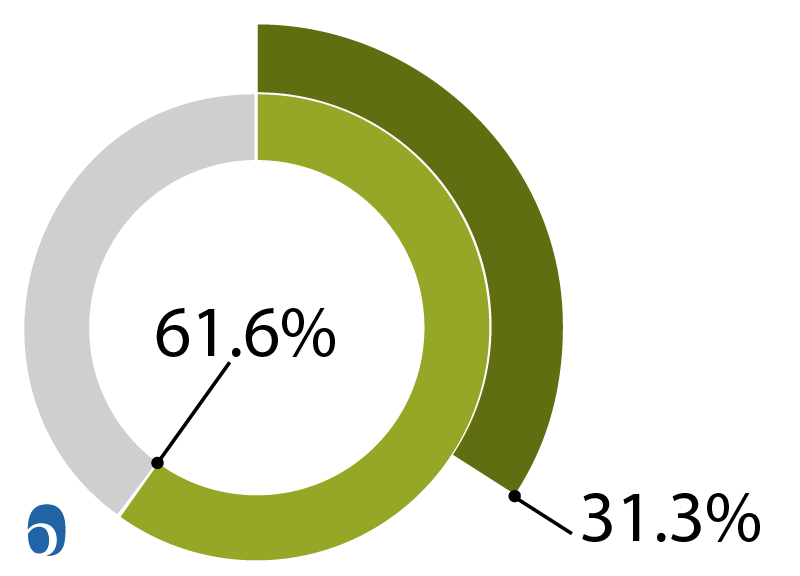
This sense of autonomous self-control isn’t something we do just at a cognitive level; we also need to FEEL the ownership. As Goleman says, “When we talk about attention and regulating attention to create more choice, we’re also talking about emotions. Emotions and attention are interwoven in the brain. For example your emotions drive where you put your attention. Your emotions determine what you think is most significant for you. Your emotions determine what you sense is your purpose and meaning.” So, if we’re going to find meaning, we’re going to need to engage emotions.
The Neuroscience of Motivation
One of the oft-discussed elements of motivation is our brain’s self-reward system. When our brains are working well, we get a dopamine reward, a little self-prescribed hit of a heroin-like drug, to reinforce that pathway. This has led some to assume that more dopamine means more motivation. However, a fascinating motivation brain study at Vanderbilt found something different.
Perhaps it’s not just how much dopamine reward we get, but WHERE our brains are creating the reward. This finding gives an important clue to the nature of internal motivation. When we have dopamine in our Insula, the study found, we are less motivated for the reward. The Insula is primarily implicated in self-awareness and perception. So paying attention isn’t enough for motivation.

As stress rises, people feel more threatened and make volatile decisions based on that sense of fragility. Meanwhile, loneliness and narcissism are increasing, while empathy and trust are decreasing. People are unmoored.
Wellbeing White Paper & Slides
“This combination is destructive to wellbeing and that’s one reason I think it’s very timely to look at what we could be doing for ourselves,” Goleman says.
“It may be why mindfulness is so trendy these days,” he continues. “When we looked at the more than 6,000 peer reviewed studies on meditation and mindfulness, despite everything going on around us, mindfulness helps us overcome these pressures.”
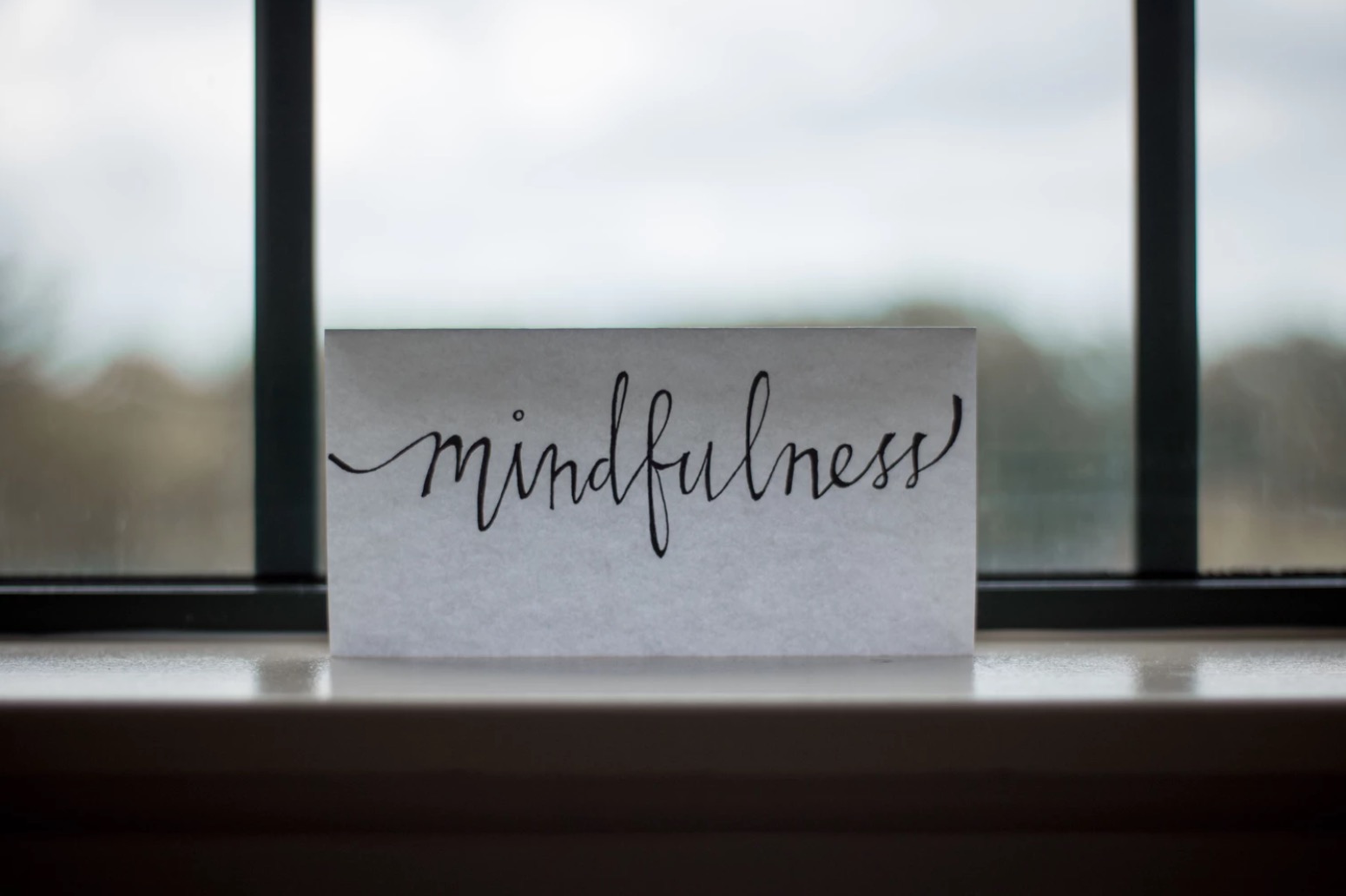
In Altered Traits, Goleman says the benefits of mindfulness speak to many aspects of wellbeing. In addition to the mental and physical, effective meditations practices also foster “loving kindness, being more empathic, be more likely to help someone in need. All of those get boosted.” As he says, “I think it’s no accident because the classical traditions from which these methods are extracted all were trying to make people flourish, help them be better human beings.”
Becoming Better Human Beings:
We have to stop tuning out others’ pain
“I see a direct relationship between the benefits that accrue for wellbeing from mindfulness and emotional intelligence,” says Goleman. “Mindfulness enhances self-awareness. It also can enhance empathy, your ability to be present for another person.”
One of the big challenges for empathy, Goleman and Richardson write, is that often people empathize emotionally with someone’s suffering but then tune out to soothe their own uncomfortable feelings.


To explain, Goleman shares the experience of mindfulness teacher Bernie Glassman, who brings participants to a Zen retreat where they live homeless on the streets of New York for a week.
Goleman points out that, “The most jarring fact of that transitioning from a regular citizen to homeless is you’re instantly invisible.” This happens, he says, because people feel anxious, and they look at homeless person, and “when they feel someone else’s suffering, the easiest thing to do is tune out. That soothes their own empathic suffering.”
Compassion is rooted in the brain’s circuitry. When we become more skilled at activating compassion, we’re better able to stay with discomfort. This suggests one way of increasing wellbeing is to increase our own feelings of connection.
One solution is to practice meditations of love and kindness, where you actively work to view all people as people you know and care about. Goleman says this kind of compassion is rooted in the brain’s circuitry. When we become more skilled at activating compassion, we’re better able to stay with discomfort. This suggests one way of increasing wellbeing is to increase our own feelings of connection.
“It’s your sense of connectedness that keeps you there instead of tuning out and turning in,” Goleman says. But in our current environment, where people are feeling increasingly disconnected and flattened, it’s incredibly challenging. “All the more need for these practices,” Goleman exhorts.
Mind Wandering and the Effort of Focused Attention
The design of the study mimics a challenge we all face in daily life. “Emotional signals occur very quickly in face to face interaction,” says Goleman. “An emotional message could be a little muscle twitch in the corner of the mouth or the eye. We get thousands of those in any face-to-face interaction. The question is, how many do you notice? How many do you pick up? How many were you present for? I remember an executive saying ‘Every time my mind wanders in a meeting, I wonder what business opportunity did I just miss?’ The same is true in everyday life. Every time my mind wanders when I’m with someone I love, I wonder, ‘What information, what communication, what message from them did I just miss?’”
On the one hand, it’s easy to see that distraction is a risk. We need to be able to focus and get the clues. But on the other hand, we need to learn to relax our minds and pay attention only to what’s important. “Those are halves of the same thing,” Goleman insists. “Paying better attention means voluntary attention. I want to pay attention to what matters to me now. That’s why strengthening focus matters.”


Intriguingly, when we “pay attention” we are also ignoring. When we focus on one kind of datum, we suppress our brain circuitry for processing other information. Most schooling pushes us to become effective at ignoring X in order to focus on Y. But sometimes, Goleman says, we need “a whole other kind of attention which is open focus, where your mind wanders freely. That’s very good for incubating creative thoughts, it turns out. The point is to have a choice, to have enough control that it’s up to you how you use your mind, not up to random idiosyncratic features in your environment.”
Again, we’re back to a simply profound notion:
Wellbeing is an inside job.
What's new in emotional intelligence?
From Enemy to Ally: How Eric Pennington Changed His Relationship with His Own Emotions – and Found His Life’s Purpose
How emotional intelligence helped Eric Pennington transform corporate life setbacks into strengths – and find purpose in both work and life.
Helping Others Achieve Overall Well-being and Healthy Connections: How Emotional Intelligence Guided Pamela Barker’s Career Path Growth
Pamela Barker’s journey began with healing bodies, but it was her discovery of emotional intelligence that unlocked her true purpose: helping others achieve overall well-being and healthy connections. From her days as a physical therapist to becoming a passionate EQ coach, Pamela’s story is one of transformation, resilience, and the power of connection. Her experience shows that real change starts from within.
Harnessing Emotional Intelligence: How Sara Canna Supports Employees and Transforms People’s Lives at the World Health Organization (WHO)
Emotional intelligence is more than just a buzzword—it’s a transformative tool that can reshape how we navigate challenges, build relationships, and thrive in demanding environments. Discover how Sara Canna brought EQ to the World Health Organization, empowering employees to manage change, stress, and personal growth.
From Corporate Consultant to Coach: Elise Jones’ Emotional Intelligence Journey-Voices from the Network
Elise Jones transformed her career by embracing emotional intelligence, shifting from a corporate consultant to a passionate EQ Coach. Through authentic connections, she found deeper fulfilment, proving that strong relationships are key to a happier, more meaningful life.
Want to Manage Your Emotions More Effectively? Find Time to Journal About Challenging Experiences
Daily journaling to reframe unpleasant events can significantly reduce depressive symptoms, lessen stress, and increase life satisfaction.
A Journey through Empathy & Optimism: Amy Jimison in Voices from the Network
When you feel stuck and can’t see a way out, how do you navigate change? Certified Coach and leadership expert Amy Jimison shares her approach.
- How Emotional Intelligence Coaches Use Emotions in Goal Setting - October 2, 2024
- 3 Winning Strategies for Successful Change Leadership: Coaching with Emotional Intelligence - September 4, 2024
- 3 Emotional Intelligence Tips for the Essence of Coaching - July 31, 2024



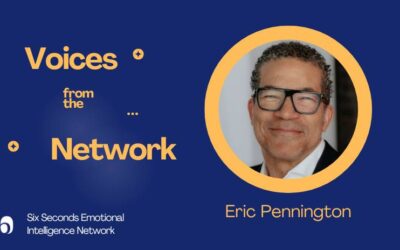
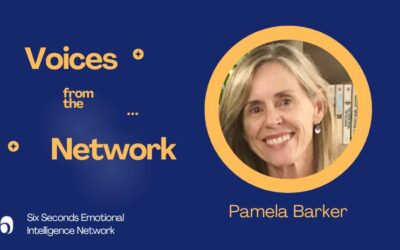

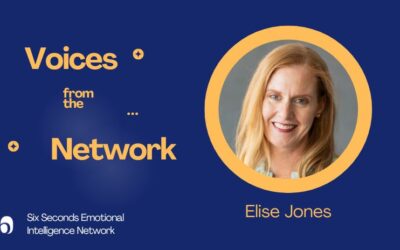


This is a detailed and comprehensive article. Thank you so much for continuing to share so generously. I started meditating every single day about three months ago, and I can vouch for some of the claims made. Focused, calmer and more resilient!
Josh, Thanks so much for this well-written article and thoughtful interview! It would seem in a world where people are feeling increasingly disconnected and threatened, these learnings have grown even more important than ever. On to continuous and deliberate practice!
Great read. We all need to be more focused on our own wellbeing before we can even begin to support others with theirs. EQ is an interesting subject and touches on so many of our daily life that we underestimate the importance of always nurturing, learning and growing ourselves. Life changes and brings new challenges and with that will bring new emotions and how you view certain things and people – sometimes with new emotions – if we have not learnt how to feel comfortable with some of these emotions then we are doing ourselves a disservice. I love all thing EQ and looking after our emotional state (wellbeing) is the start of looking after the rest of us. Keep doing what you are doing and thanks x
Dear Josh,
Thanks again for a wonderful well written article. I appreciate your insights.
Loved it! Thanks Josh.
I feel gratitude after this reading! Wonderful way to start the New Year!
Josh… I wish we could connect your research and thinking to the work of Human Synergystics.
We are in such a need to have a
‘culture of emotional intelligence’. I would love to host a session with you and them to create an organizational model!
This is a really refreshing, encouraging and accessible read… now to the practice! Thank you, Joshua.
Well written and relevant points. It all starts from inside and the more you understand what’s going on there and why, the better and more effective tools are available for living a engaged and satisfying life. I love Daniel Goleman and all those here who are promoting a deeper understanding of EQ.
Very nice – go all in!
Great article Josh! See the relationship for Wellbeing from mindfulness and emotional intelligence and the 3 Six Seconds Competencies skills in EIM, EO and NG link with Wellbeing too!
Fully agree with Marcie : “Children should be taught mindfulness in schools”. And their parents too 🙂
Well written. …..sign me up.
This was a great read, especially having just finished lessons on Emotional Intelligence in my Teen Leadership classes.
Beautufully written. I enjoyed this article.
I enjoyed this article and am challenged by it to look further into this practice of meditation and emotional control.
I enjoyed this article very much. Advertisers certainly know how to exploit our insecurities to make us purchase things we don’t need. It seems like technology has sped up the process of disconnection from ourselves. Children should be taught mindfulness in schools and learn that they already have everything they need within themselves.
Eye-opening and thoughtful article..thank you, josh.
Many thanks for sharing the article Joshua. We often wait for the mirror to smile at us before smiling back not realising that it is just a reflection of who we are and where we are at.
Wonderful read on this snowy afternoon in Eastern Pa!
This was such a refreshing read. I’ve traveled the path to cultivate my highest self. It’s not easy, but it’s so worth it! Thank you for sharing this knowledge and insight!
Thank you for sharing this article. Please add me to your newsletter.
Such a great reminder and around the Holiday Season this is extra special. Thank you.
A very interesting article that talks about connection between Emotional Intelligence and Wellbeing. I did a similar research on EI and its impact on heuristics in decision making. Thank you so much for sharing the research, this gives us deeper insights to ponder on
Thoroughly enjoyable, thought provoking read.
Wonderful
Great article Josh. Thanks for the interview and the reminder of the importance of mindfulness, wellbeing and being in control of our inner self.
Thank you. Please add me to your newsletter list.
Fantastic article and interview Joshua. It came to me at the best time. The only way inward is practice, practice, practice. And yes, there is still a lot to learn from the ancient wisdom of the stoics, including Native/Aboriginal/Indigenous culture and spiritual practices which are rooted in the same premises you describe. Thank you.
Thank you Catherine! Lots of practice indeed 🙂